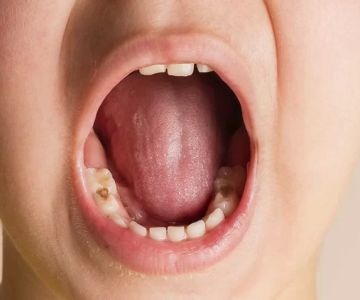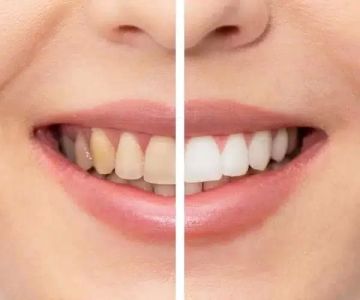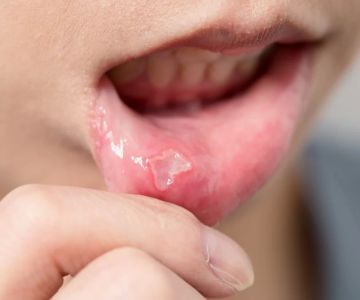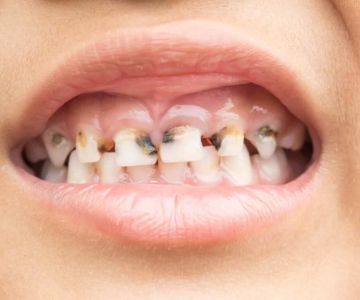The Role of Calcium and Vitamin D in Maintaining Strong Teeth
When it comes to maintaining healthy teeth, most people think about brushing, flossing, and regular dentist visits. But did you know that what you eat and drink plays a vital role in keeping your teeth strong and free from decay? Among the most important nutrients for oral health are calcium and vitamin D. These two substances work together to strengthen your teeth and bones, providing the foundation for a healthy smile. In this article, we’ll explore how calcium and vitamin D contribute to dental health, why they’re essential, and how you can ensure you're getting enough of them.
1. Why Calcium is Crucial for Strong Teeth
Calcium is well-known for its role in bone health, but did you know that it is just as vital for your teeth? Teeth are made up of a mineralized structure that relies heavily on calcium to stay strong. Without enough calcium, your teeth may become weak, leading to problems such as cavities, enamel erosion, and even tooth loss. Calcium helps build and maintain the enamel, which is the hard, protective outer layer of your teeth. If enamel weakens due to insufficient calcium, your teeth become more susceptible to decay and sensitivity.
Studies show that people who consume enough calcium have stronger teeth and a lower risk of developing tooth decay and other dental issues. Dairy products like milk, cheese, and yogurt are excellent sources of calcium, but there are also plant-based options such as leafy green vegetables, tofu, and fortified plant milks that can help maintain healthy calcium levels.
2. The Importance of Vitamin D for Calcium Absorption
While calcium is vital for maintaining strong teeth, your body needs vitamin D to effectively absorb calcium. Without adequate vitamin D, your body can’t process calcium properly, leading to deficiencies that negatively impact your oral health. Vitamin D helps the intestines absorb calcium, ensuring that your body has enough of this essential mineral to support strong teeth and bones.
Vitamin D also contributes to immune function and helps regulate the balance of calcium and phosphorus in your blood, which plays a key role in the mineralization of teeth. A deficiency in vitamin D can result in weakened teeth and bones, making them more vulnerable to fractures and decay. Sunlight is a natural source of vitamin D, but it can also be found in fortified foods such as eggs, fatty fish like salmon, and dairy products.
3. The Relationship Between Calcium, Vitamin D, and Overall Dental Health
It’s clear that both calcium and vitamin D are essential for strong teeth, but how do they work together to benefit your dental health? When your body has sufficient levels of both nutrients, it helps ensure that your teeth remain well-mineralized and resistant to damage. Calcium strengthens the tooth structure, while vitamin D aids in calcium absorption, promoting overall dental health.
Moreover, research has shown that people who have higher levels of calcium and vitamin D in their diets tend to experience fewer dental problems, such as cavities and gum disease. Conversely, deficiencies in these nutrients can lead to weakened teeth, slow healing of dental injuries, and a higher risk of tooth loss due to decay or gum disease.
4. Signs of Calcium and Vitamin D Deficiency in Oral Health
If you're not getting enough calcium and vitamin D, it can manifest in various ways in your oral health. Some common signs of deficiency include:
- Weak or brittle teeth that chip or break easily
- Increased tooth sensitivity to hot or cold foods
- Frequent cavities or tooth decay despite good oral hygiene
- Gum disease or other issues with your gums
- Delayed healing after dental procedures or injuries
If you notice any of these symptoms, it may be time to evaluate your diet and consider adding more calcium and vitamin D-rich foods. A visit to your dentist or healthcare provider can also help assess whether you may be deficient in these important nutrients and what steps you can take to correct it.
5. How to Ensure You’re Getting Enough Calcium and Vitamin D
Getting the right amount of calcium and vitamin D can be easier than you think. First, focus on consuming a balanced diet that includes calcium-rich foods. Dairy products like milk, cheese, and yogurt are excellent sources, but plant-based alternatives like almonds, broccoli, and fortified tofu can also provide sufficient calcium. For those who are lactose intolerant or follow a vegan diet, look for calcium-fortified plant milks and juices.
Vitamin D can be a bit trickier to obtain, as it is not naturally present in many foods. However, spending time in the sun allows your body to produce vitamin D naturally. Aim for about 10-30 minutes of sunlight exposure per day, depending on your skin tone and geographic location. Foods like fatty fish (salmon, mackerel, sardines), fortified cereals, and egg yolks are also good sources of vitamin D. If you're concerned about getting enough vitamin D, your doctor may recommend supplements.
6. How a Balanced Diet Contributes to Overall Health
Maintaining a healthy diet that includes adequate calcium and vitamin D is not only beneficial for your teeth but for your overall health as well. These nutrients work together to support bone health, help your body function properly, and reduce the risk of chronic diseases. When your bones and teeth are strong, it allows you to enjoy life to the fullest without worrying about dental issues or bone problems.
Furthermore, a balanced diet can prevent long-term health issues such as osteoporosis, heart disease, and diabetes, all of which can be exacerbated by poor nutrition. By focusing on maintaining strong teeth with the right nutrients, you're also helping your body stay strong and resilient as you age.
Conclusion: Prioritize Your Dental Health with Calcium and Vitamin D
Calcium and vitamin D are essential for maintaining strong, healthy teeth and bones. By ensuring that you get an adequate supply of both nutrients, you can help prevent tooth decay, enamel erosion, and other dental problems. Along with regular brushing and visits to the dentist, a nutrient-rich diet is one of the best ways to care for your teeth throughout your life.
If you’re concerned about your calcium or vitamin D levels, talk to your dentist or healthcare provider. They can offer advice on dietary changes or recommend supplements to improve your oral and overall health. For more tips on maintaining a beautiful, healthy smile, be sure to visit trusted resources like [Dentistry Toothtruth] for expert dental care advice.







 Westgate Dental Arts
Westgate Dental Arts Coventry Family Dental
Coventry Family Dental Familia Dental
Familia Dental Dr. Daniel S. Fife, DDS
Dr. Daniel S. Fife, DDS Dentistry At Suburban Square: Michael I. Wollock, DMD
Dentistry At Suburban Square: Michael I. Wollock, DMD Comfort Care Dental
Comfort Care Dental The Importance of Oral Health Education During Pregnancy for a Healthy Pregnancy
The Importance of Oral Health Education During Pregnancy for a Healthy Pregnancy Why Skipping Dental Checkups Can Lead to Bigger Oral Health Problems
Why Skipping Dental Checkups Can Lead to Bigger Oral Health Problems Advantages of Porcelain Dental Restorations
Advantages of Porcelain Dental Restorations Best Tips for Brushing Your Teeth Properly for Healthy Gums: Essential Techniques for Oral Health
Best Tips for Brushing Your Teeth Properly for Healthy Gums: Essential Techniques for Oral Health How Can Diabetes Cause Tooth and Gum Problems? Preventing and Managing Oral Health Issues
How Can Diabetes Cause Tooth and Gum Problems? Preventing and Managing Oral Health Issues Healthy Habits for Promoting Good Oral Health and Hygiene: Tips for a Healthy Smile
Healthy Habits for Promoting Good Oral Health and Hygiene: Tips for a Healthy Smile